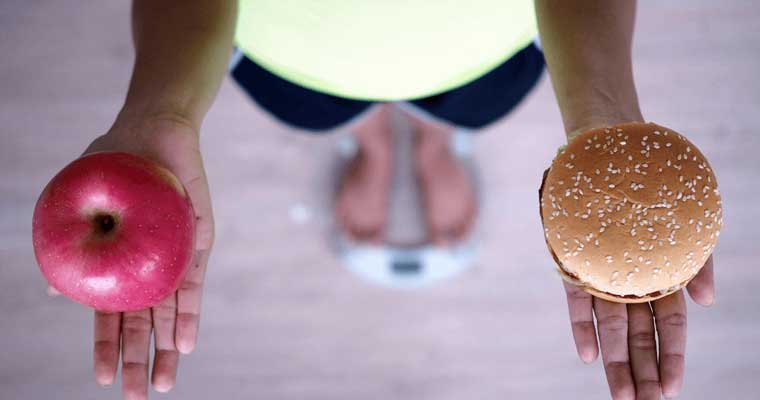Flexible or strict diet? Which is the most recommended
Choosing a type of diet, meal plan and simply some guidelines to eat more nutritiously is a complex decision, since there are a lot of myths, beliefs, and lack of information towards this.
When we choose a dietician or nutritionist, it is important to know their way of working, even if we ourselves decide to keep track of our diet is consistent with our life, bearable and, especially, that we create an adherence.
Before going in depth on each type of plan, we are going to take into account two main factors that can influence when choosing one or the other:
Create a habit.
We cannot change our habits from one day to the next. It is a process that requires effort, dedication and discipline. Start at the beginning.
Creating small habits can make a difference. Start by setting small goals for each day, so that, although they may cost at first, they end up being established and automated in our lives. If you try to change your diet from one day to the next, chances are that you won’t really be able to adapt. Sometimes it is better to act more progressively but ensuring a long-term change.
We give you some examples:
-Change the process of cooking the foods: fried by the grill, oven, grill … It can make a difference in the total calories consumed throughout the day.
-Exchange sugar for sweetener.
-Change the chocolate that we use for a black one: we can start with 70% pure cocoa, and progressively increase the percentage of cocoa.
Adherence:
No matter how good and elaborate the plan is, it must create adherence. Adherence is the behavior of the person towards a diet, that is, following the guidelines, that although it is not always easy, they can maintain it over time since if not, they will end up abandoning.
Whether our goal is to gain muscle mass or lose fat, it is not something that is achieved overnight, we must maintain this deficit or surplus over time to obtain adequate results.

So, flexible diet or strict? Characteristics of each one.
D closed diet: is one that is characterized by being more restrictive in terms of a variety of foods because they are usually pre-established in the corresponding food number. You can have alternatives but in a limited way.
This type of diet is usually more recommended for people with very specific objectives, such as wanting to seek maximum performance, compete etc.
One of the main disadvantages and why people do not manage to maintain is that when it comes to socializing, it is difficult to square options other than the established one. Psychologically they are harder and more difficult. They have a high level of abandonment.
Flexible diet:
They are those that are characterized by having a range of dishes and options from which to choose and make the combinations that reach the established macronutrients. Do not confuse a flexible diet with a free diet , since a few years ago, the controversy in this sector was quite wide due to the fact that they began to square as pastry options, fast food, etc. because it went into macronutrients.
It is easier to follow and they create an adherence to it. When it comes to socializing, it can be easier and more bearable since we can always introduce an option.
Let’s remember that not everything goes, the purpose is to eat healthily but with a greater degree of freedom.
Which one to choose?
There is no concrete answer to this question. Just as each person has different requirements, the choice is personal and individual for each person.
If you have never had good habits, this is the first time you want to follow a plan, we recommend you try a flexible diet because you have to start by looking for a progressive change in habits as we have mentioned in the previous sections. If you already have experience, you are looking for a goal, you know how to dissociate anxiety from food or you simply prefer to stick to a plan, a closed diet may be the option for you.
Remember to choose a nutritionist, dietician or preparer according to your goals, tastes and values.
Other points to keep in mind:
Be more restrictive implies that cravings may be greater since there is no possibility, unless you decide to skip the plan, of introducing the specific food that you feel like at that moment of time.
A diet flexible , it is a lifestyle. It is based on the pursuit of long-term health. Healthy food is the priority.
Being flexible, it does not mean that everything goes. At the end of the day, the quality of food is very important, but also the caloric balance.
